Gurwinder's 25 Useful Ideas for 2025 (A Visual Guide)
#20 A visual guide to Gurwinder Bhogal's mental models to navigate 2025
If you’ve spent any meaningful time on Substack or if you're a Modern Wisdom fan and you don’t know about Gurwinder, you might be living under a rock.
For someone who has contributed so many great ideas to the public discourse, Gurwinder’s greatest strength, in my opinion, is his ability to not be defined by labels. No matter how hard you try to label him, the best you can call him is a thinker. And this is something I deeply respect about him.
At the start of this year, he published a list of 25 useful ideas for navigating 2025. While he has written several influential pieces, this list stood out to me as a powerful framework for life, relationships, and career. I have read it so many times that I could not help but visualise the entire thing.
For a deeper dive into these ideas, I highly recommend reading Gurwinder’s original post.
All the excellent insights in this post are entirely thanks to Gurwinder’s brilliance. Any misrepresentation or lack of context is solely on me.
1. Negative Partisanship:
Many people’s political views revolve not around what they support, but what they oppose.
2. Enshittification:
Online services start out serving users. When they have enough users, they switch to serving advertisers/shareholders, at the expense of users.
3. Dawkins’ Law of the Conservation of Difficulty:
The easier an academic field, the more it will try to preserve its difficulty by using complex jargon.
4. Reminiscence Bump:
Perhaps people who yearn for the time when their country was great are mostly just yearning for their childhood.
5. Region-Beta Paradox:
If your new job is hell, you’ll leave it, but if it’s just unsatisfying, you’ll likely grind it out. Thus, small problems often threaten our quality of life more than big ones.
6. Dark-Ego-Vehicle Principle:
Social justice activism is widely regarded as driven by noble intentions, but it attracts large numbers of psychopaths, narcissists, and other dark tetrad personalities who use it to feed their sense of self-importance and to dominate others.
7. Protege Effect:
The best way to learn something is to try to teach it to others.
8. Baumol’s Cost Disease:
As an industry’s productivity increases, wages in that industry naturally rise. This forces wages—and prices—in services without increased productivity to also rise to stay competitive. Thus, as a country gets richer, goods become cheaper, but labor-intensive services like healthcare & college tuition cost more.
9. Stockdale Paradox:
The optimal state of mind is neither optimism, which leaves you unprepared for adversity, nor pessimism, which destroys motivation, but optimistic pessimism.
10. Ichi-go ichi-e:
Even if your current situation sucks, be gracious that, of all the humans that will ever exist, only you will have the privilege of experiencing this moment in this specific way.
11. Explanatory Inversion:
Questions rest on unexamined assumptions, so always try flipping them.
12. Event Bias:
One reason negativity dominates the news is that bad news tends to happen suddenly while good news tends to happen gradually so is rarely newsworthy on any particular day.
13. Pie Fallacy:
Wealth creation is one of society’s few positive-sum games; if you fix up a battered old car, you increase its value, making yourself richer without making anyone else poorer.
14. Golden Law of Stupidity:
A stupid person is a person who causes losses to others while themselves deriving no gain and even possibly incurring losses.
15. Goal Dilution Effect:
Generally, you’ll only be as convincing as your worst point, so instead of making as many arguments as you can, make only the best.
16. Bias Blindspot:
The assumption that bias is just something that affects those we disagree with is our greatest source of bias.
17. Blue Dot Effect:
The more we solve our problems, the more we widen the definition of “problem” so that our number of problems remains constant.
18. Overview Effect:
Although astronauts are chosen for their unflappability, when they see the earth from space — a tiny marble in an infinite void — they’re often overcome with a sense of profound connection with all humanity, and everyone’s earthly squabbles suddenly seem trivial.
19. Rumsfeld Matrix:
There are things you know you know, things you don’t know you know, things you know you don’t know, and things you don’t know you don't know. The last group is the biggest pitfall. Always try to account for what you don’t know you don’t know.
20. Sheepskin Effect:
Employers value qualifications more than education. This is because the purpose of the education system is not actually to educate people, but to sort the “wheat” (worker bees) from the “chaff” (slackers, dreamers). It’s why students are taught things they’ll never use — what they learn isn’t as important as demonstrating they can follow instructions and complete what they started, which a qualification signifies.
21. Ozemponomics
GLP-1s like Ozempic are threatening limbic capitalism by reducing cravings. For instance, the average household with 1+ family members on a GLP-1 is spending ~10% less on chips & cakes. If this can reduce addictions and obesity, it will likely also reduce healthcare costs and unemployment.
22. Deviancy Amplification:
An outrageous act or event gets the public’s attention, prompting reporters to look for new examples.
23. Left-Brain Interpreter:
Our reasons are stories we tell ourselves.
24. Barrow's First Law (aka Barrow’s Uncertainty Principle):
“Any universe simple enough to be understood is too simple to produce a mind able to understand it.” So don’t worry if you don’t know why you’re here, or where you’ll eventually go. Just focus on living.
25. Sphexishness:
Army ants follow each other’s pheromone trails to know where to go. Sometimes, they accidentally form a loop, or “ant mill”, circularly following each other until they die of exhaustion. Sphexishness is when you blindly follow a rule without checking if the rule works in the present situation.
Do check out Gurwinder’s Substack for more useful ideas and insights that will give you a clearer, more nuanced understanding of people, society, and culture.
This has been one of the most enjoyable pieces for me to visualise. I have one of these visuals as my wallpaper now. You can find all my visual work in one place here.
If there’s an essay or ideas from a book you’d love to see visualised, drop it in the comments.
Hope this helps.
Thank you,
Ameen
Feel free to let me know your thoughts. I respond to everyone.





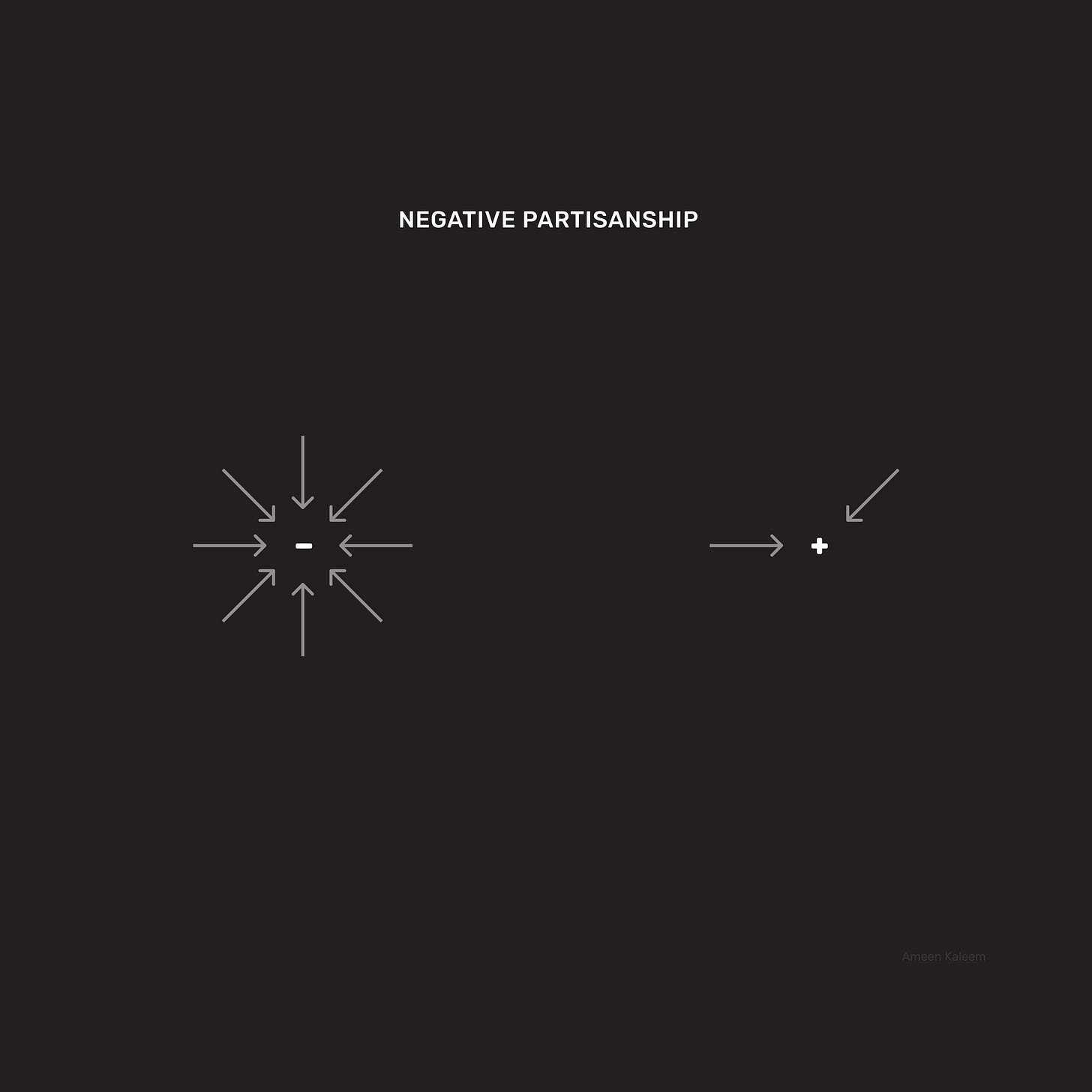

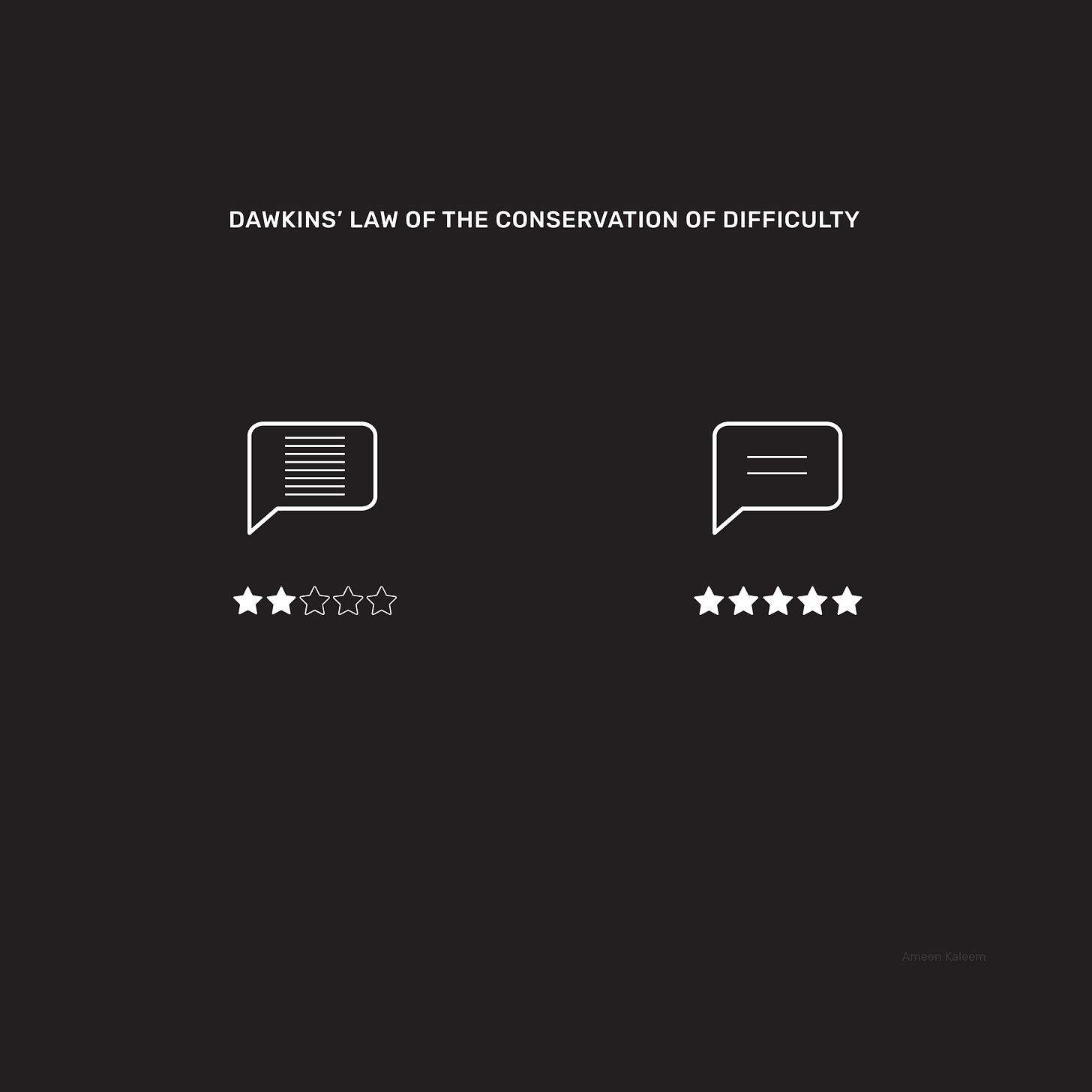






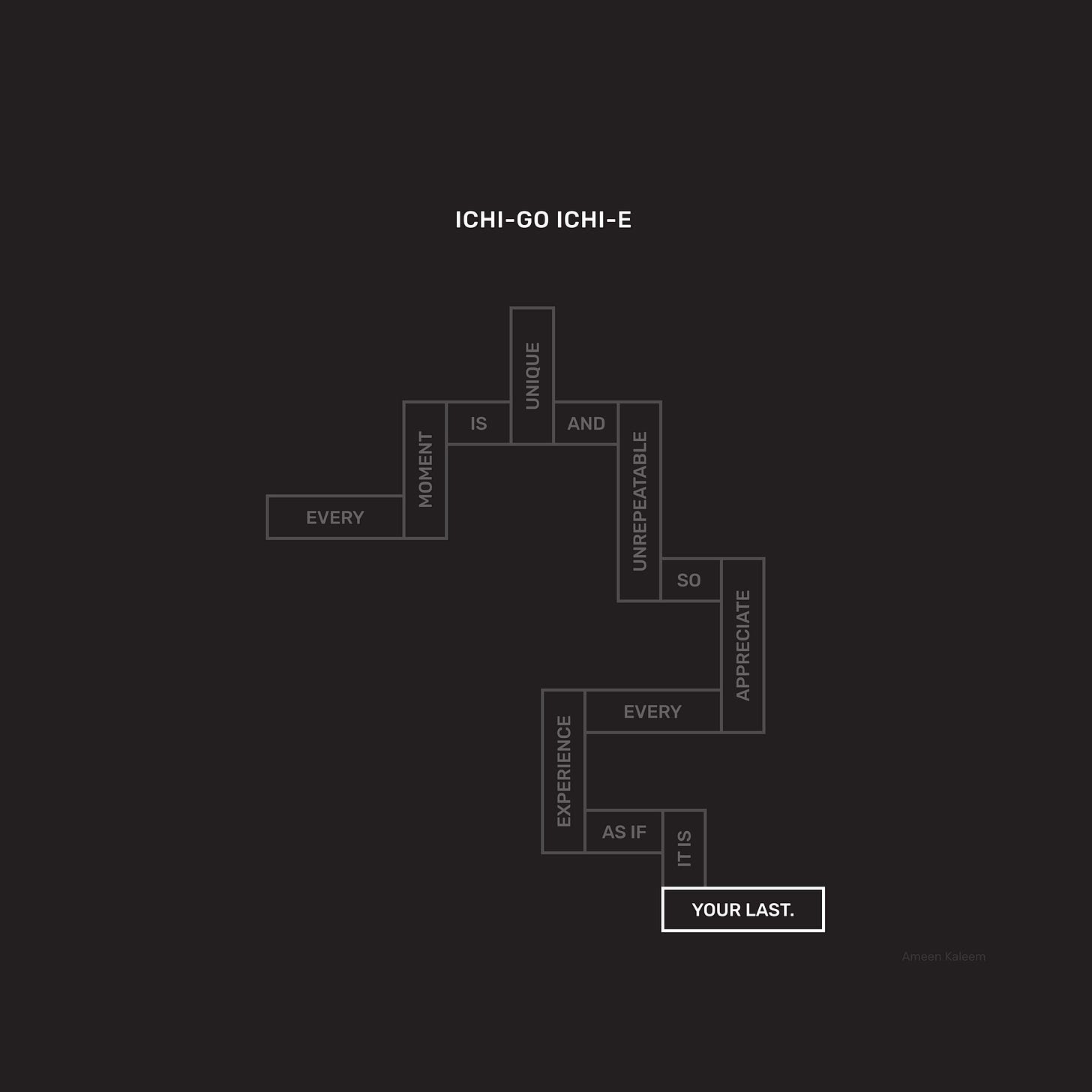





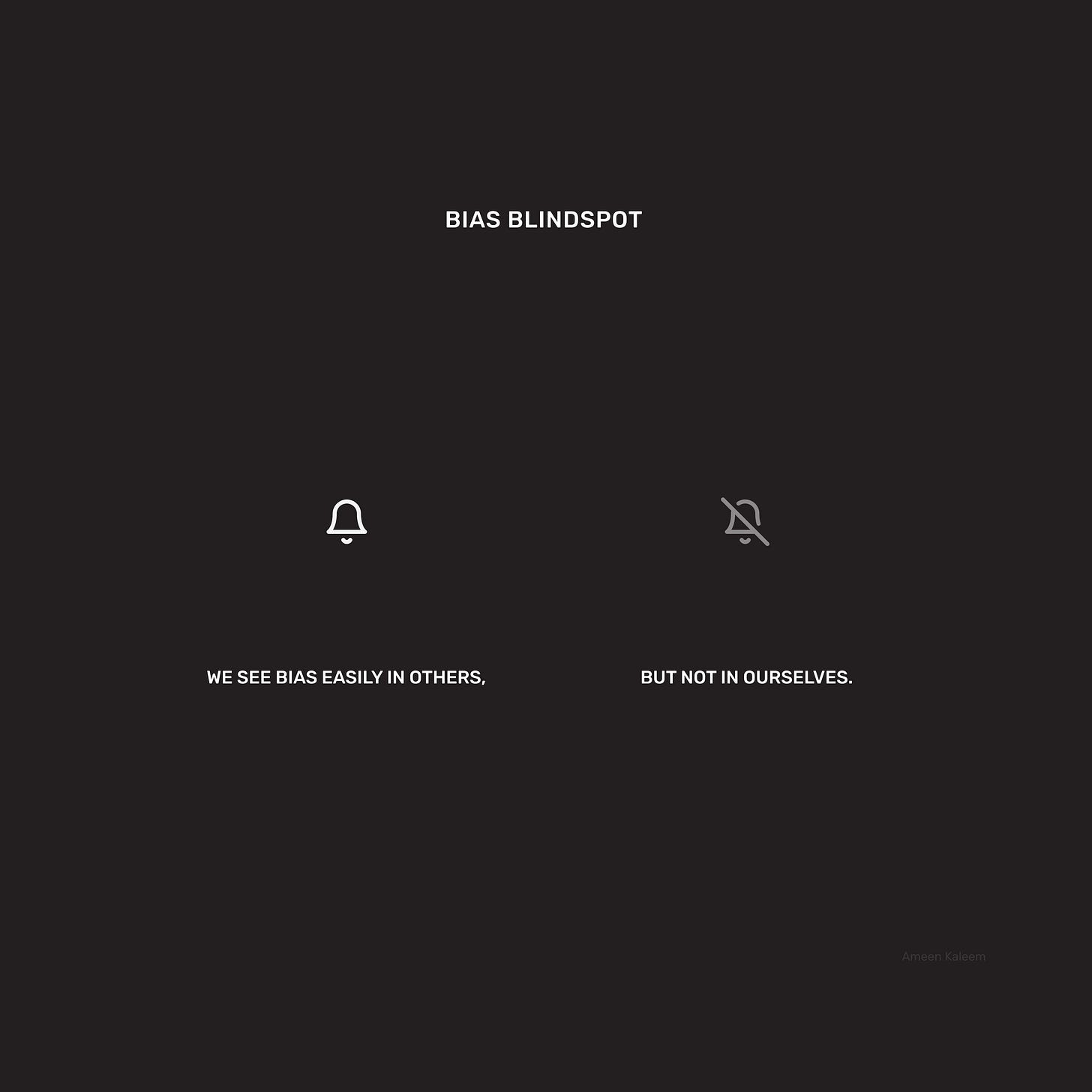

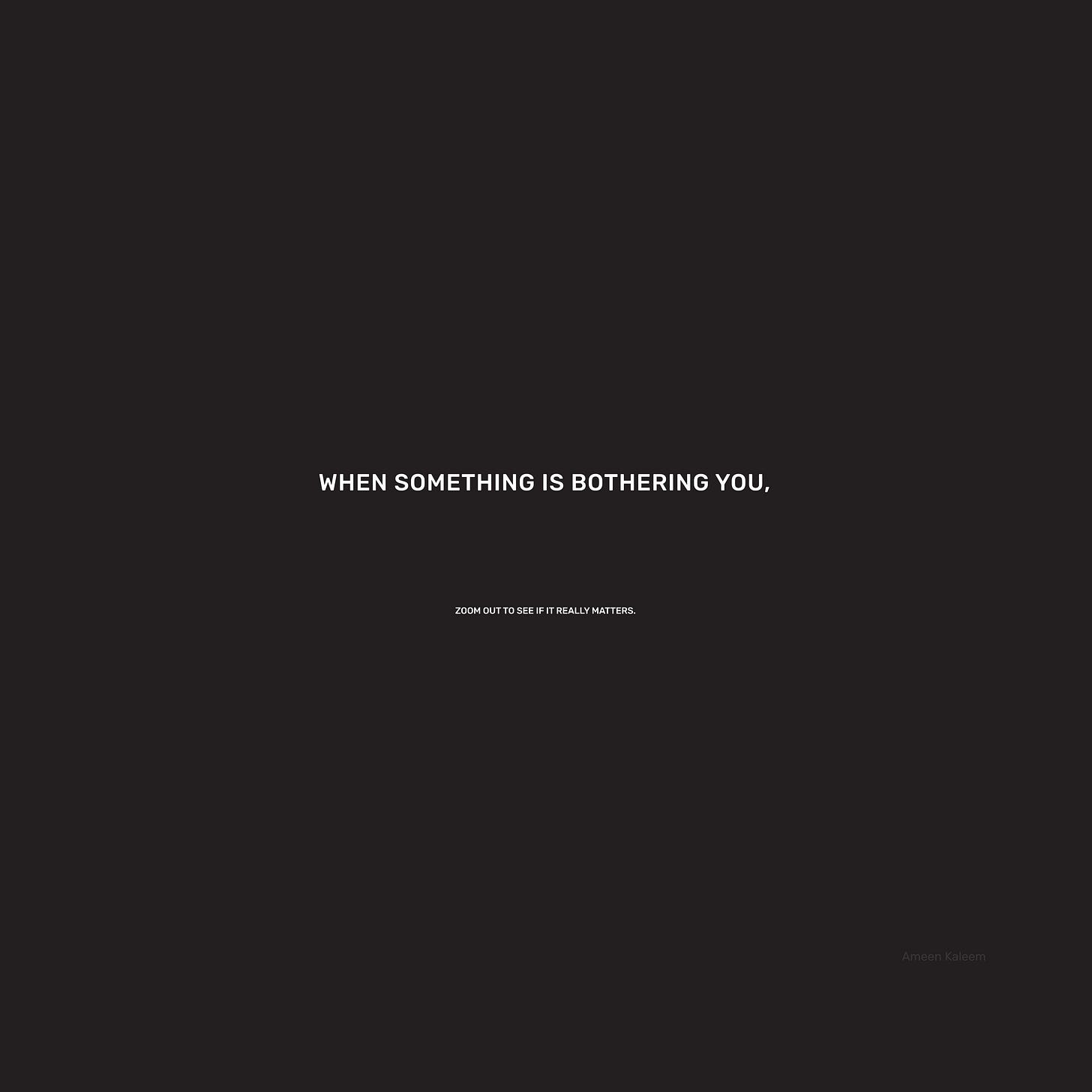





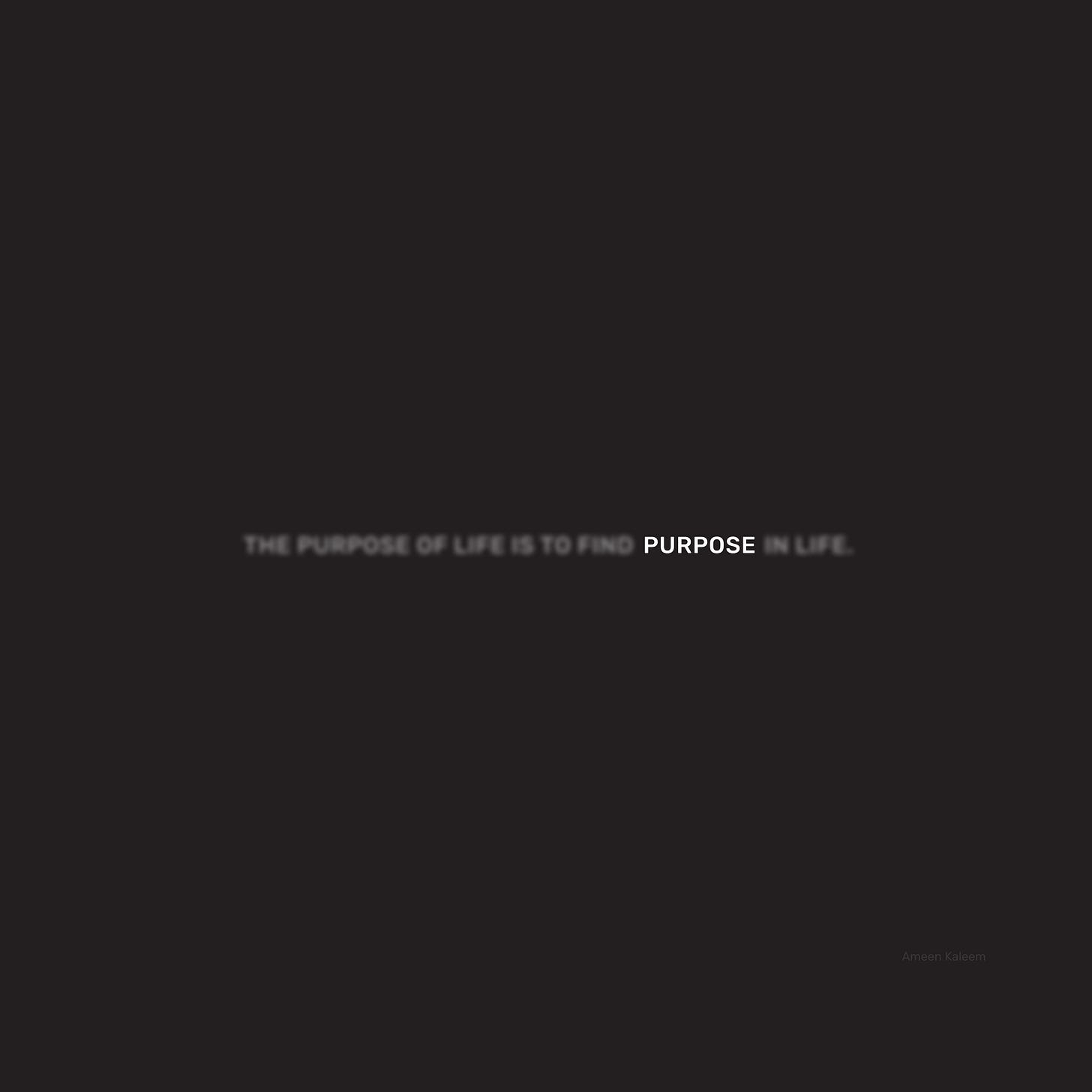

This is awesome work, Ameen. Thank you!
Appreciate these ideas 💡